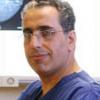Consultant Breast Surgeon, Simon Marsh has provided a thorough and useful guide for women who are concerned on finding a lump in their breast. The first question to ask on finding a lump is - "What should I do?". Mr Marsh says, "It is completely understandable that you might worry about the possibility of breast cancer if you find a lump, but remember; most lumps are not cancer. The most likely cause for a lump depends on your age".
The Total Health Breast Lump Guide includes the following sections:
I have a lump in my breast - how will it be diagnosed?
- Introduction most breast lumps are not cancer
- What you need to do if you find a lump in your breast
- The triple assessment to accurately asses the nature of a breast lump
- Diagnosing from the triple assessment
- Types of benign breast lumps
- Breast cancer treatments
I've been told I have a benign breast lump - what should I do?
- Fibroadenomas
- Breast cysts
- Breast abscesses
- Phyllodes tumours
- Lumps in the breast caused by fatty tissue
- Breast lumps in men
- Lumps in the breast that do need to be removed
- Conclusion
I've been told I have breast cancer - what treatment will I have?
- Introduction to treating breast cancer
- Tailoring treatment for breast cancer
- Surgery for breast cancer
- Reducing the risk of the breast cancer recurring
- Has the cancer spread?
- Laboratory analysis following surgery for breast cancer
- Radiotherapy treatment for breast cancer
- Endocrine treatment for breast cancer
- Chemotherapy for breast cancer
- Molecular treatments for breast cancer
- Pre-operative chemotherapy for breast cancer
- The “next big thing” for breast cancer treatment
Breast cancer FAQs
- What is breast cancer?
- What causes breast cancer and how can I reduce the chances of getting it?
- What are the symptoms of breast cancer?
- How often should I have a mammogram?
- How are breast lumps investigated?
- What types of breast lump are there?
- What are the treatments for breast cancer?
This highly authoritative guide also links to other senior breast specialists providing valuable information to explain other important breast lump issues such as:
- Breast screening - assessing the risks
- Symptoms such as breast discharge,
- Breast pain management
- The role of HRT and breast cancer
- Latest interventional oncology cancer treatments and Targeted Intraoperative Radiotherapy (TARGIT)
.
Infection resulting in a collection of pus walled off by inflamed tissues.
Full medical glossary
A benign tumour that forms from glandular cells.
Full medical glossary
Not dangerous, usually applied to a tumour that is not malignant.
Full medical glossary
Abnormal, uncontrolled cell division resulting in a malignant tumour that may invade surrounding tissues or spread to distant parts of the body.
Full medical glossary
The use of chemical substances to treat disease, particularly cancer.
Full medical glossary
A fluid-filled, enclosed pouch developing in a bodily structure as part of a disease process
Full medical glossary
One of the three main food constituents (with carbohydrate and protein), and the main form in which energy is stored in the body.
Full medical glossary
gastrointestinal
Full medical glossary
Abbreviation for hormone replacement therapy, the administration of female hormones in cases where they are not sufficiently produced by the body.
Full medical glossary
An imaging study of the breasts, for example, by X-ray.
Full medical glossary
The treatment of disease using radiation.
Full medical glossary
A way to identify people who may have a certain condition, among a group of people who may or may not seem to
Full medical glossary
A group of cells with a similar structure and a specialised function.
Full medical glossary
An abnormal swelling.
Full medical glossary








